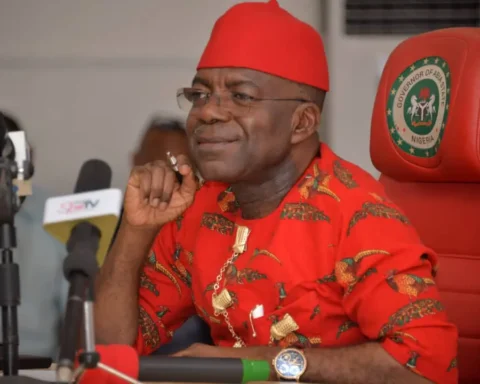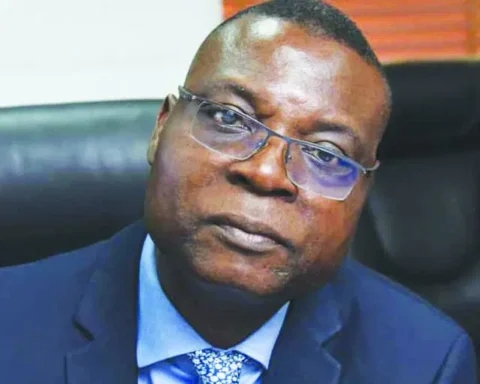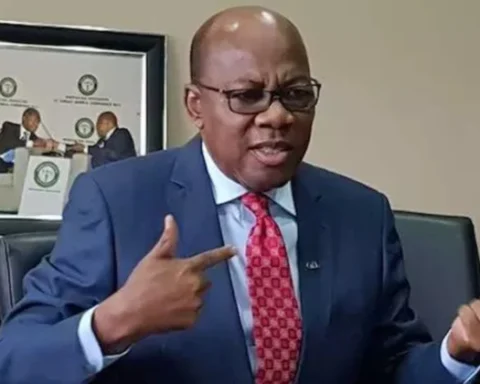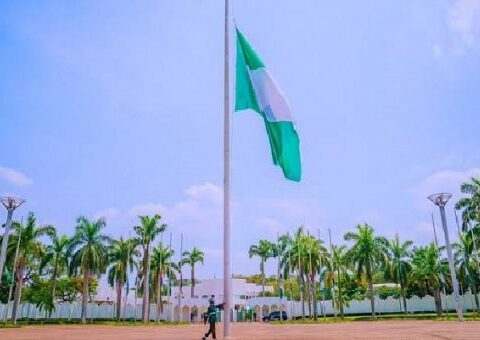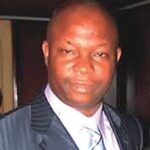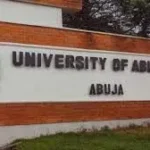THE buzz recently was media headlines that the Director-General of the World Trade Organisation, Dr. Ngozi Okonjo-Iweala, had endorsed Nigeria’s president, Alhaji Bola Ahmed Tinubu, and his economic policy as well as the ongoing reform agenda. What she said to the state broadcaster, NTA, what the presidency reported in its subsequent press statement, how the media framed it, and the general understanding of the majority of Nigerians, stirred a strong controversy amongst the people, and especially so among political partisans and entrenched interests. Not many of our people understood what Okonjo-Iweala said during her visit to Tinubu in the Aso Rock Villa in Abuja. Probably not many in the presidency did either. If they did then they may have settled to put a positive spin on her ‘endorsement’.
But she chose her words carefully and with utmost tact. That should not come as a surprise to the initiated and to the discerning. Dr. Okonjo-Iweala is a Nigerian. She was a Finance Minister and Coordinating Minister for the Economy a little over 10 years ago under Presidents Olusegun Obasanjo and Dr. Goodluck Jonathan. Her visiting Aso Rock at this time when the jostling for the 2027 election is heating up, or at any time for that, would still have presented a dilemma for her. It would be a walk in a minefield. It would not really matter that she was conducting official business for her employers.
Her every move would be scrutinized. Her every statement would be analysed. Her every utterance would be dissected, and varied meanings imputed. And that was what happened. The ruling party, the All Progressives Congress [APC], was the first off the block. The operatives of the party described the statement of Okonjo-Iweala, whom some suspected of not being enamoured with candidate Tinubu in 2023, as a validation of the regime’s chosen path to national economic recovery. They were all over the map and turned themselves into echo chambers for the international public servant. There was no missing the not too subtle hints from the APC apparatchiks that a leading light from the ‘opposition’ section of the country has given the regime a ringing endorsement. The ‘opposition nation’ in country being the Igbo who appear to be reluctant to embrace the APC in a whole-hearted manner.
In 2015 when the APC ousted the ruling People’s Democratic Party (PDP) at the centre, the south east was probably the only region in which the party did not produce a state governor. It had a sprinkling of National Assembly lawmakers. It was as a result of the poor electoral showing that the then elected president, the late Muhammadu Buhari, made the infamous, divisive and extremely insensitive declaration that he would only favour parts of the country that voted massively for him and his party. He said he would reward the sections of the country that voted for him with 97% of national resources and leave the crumb of 5% (don’t bother if the percentages do not add up) for the Igbo nation and a few other ‘rebellious’ ethnic groups. And he put it into practice to a telling effect on the Igbo who remained unbowed.
On their part, opposition parties and other elements who didn’t believe in the president and his administration countered the regime’s claim about endorsement. They said that there was no such thing. They chose to highlight the portion of Okonjo-Iweala’s admonition that the administration should put a human face to its reform agenda by the provision of safety nets for the majority of the people who have been crushed by the sweeping and drastic changes to the economy. The WTO chief dropped red meat for all the contending forces in the country. She demonstrated acute knowledge of diplomatic ‘speak’. She did not explicitly say that the economy was exacting a heavy toll on the people.
And she did not say categorically that the reform has been a roaring success either. She merely said that the regime had stabilised the economy. And the ‘economic stability’ phrase which she used was loaded. The man who drilled it down recently was the erstwhile head of the National Bureau of Statistics [NBS], Yemi Kale, who was said to have left the post in controversial circumstances. Some people believed he was sacked for resisting attempted NBS data tampering by politicians.
Kale wrote recently to explain what it meant when an economist talks about economic stability. But first he had to make a strenuous effort to inform that his intervention was not driven by partisan politics or sour grape syndrome. He said: “I try to stay away from unnecessary debates but let me offer my own view from a purely technical and economist perspective [for education purposes only] to recent debates that were really unnecessary. When economists say ‘an economy is now stable’, they usually mean that the economy has reached a point where it is no longer experiencing major fluctuations/disruptions.
In practical terms, it suggests macroeconomic indicators are steady, predictability and confidence where businesses, investors, and consumers feel more confident making long term plans and there are no immediate crises… An economy being described as ‘stable’ however, does not always mean that citizens are free from hardship. When economists say the economy is ‘stable’, they usually mean that overall indicators [like inflation, exchange rates, and GDP growth] are no longer swinging unpredictably. For example, inflation falling from 25% to 12% and staying steady might be seen as stability.
“However, prices may still be very high compared to past years, meaning [that] people [would still] continue to struggle. Citizens experience the economy differently through cost of food, housing, transport, healthcare, and wages. EVEN IN A ‘STABLE’ ECONOMY, IF INCOMES ARE LOW AND BASIC GOODS REMAIN EXPENSIVE, FAMILIES STILL FACE HARDSHIP [emphasis mine]. Stability might only mean [that] conditions are not getting worse quickly, not that they’ve improved enough to ease daily struggles. So, stability, which is good, can coexist with hardship, which is bad for several reasons”.
The simple and straightforward take aways from Kale’s illuminating intervention is that Nigerians may be in the phase of economic stability but the people are still “hurting from the high cost of living” caused by the crisis; economic stability benefits investors and businesses first and that it could ”take months or even years before [that] stability eases hardship and translates into job creation, higher wages, or cheaper goods for citizens, ASSUMING THE STABILITY HOLDS LONG ENOUGH“. Kale acknowledged that the first step in “reversing hardship is stability and stopping the bleed”.
However, Kale who’s currently the Group Chief Economist at the Afreximbank, warned that achieving economic stability on its own would not be a “sufficient condition” for economic recovery. From the foregoing explanations, it’s easy to conclude that Okonjo-Iweala chose her words cautiously and carefully as a diplomat that she is while visiting Aso Rock. It has to be noted that she was a vice president at the World Bank where the possession of diplomatic skills are not optional.
The distabilisation of Nigeria’s economy in the last 27 months is deep, and the toll on the people has been huge and telling. The expectation now is that citizens should celebrate that ‘economic stability’ has been tentatively achieved which should be a harbinger for our elusive El Dorado. But not so fast. The APC regime of Alhaji Tinubu copied the classical but widely failed prescriptions of the Bretton Woods institutions – the World Bank and the International Monetary Fund]- without formal acknowledgement and the buy-in of Nigerians. The owners of the bitter pill prescriptions had said last year that it would take a minimum of 15 years of administering the doses for there to be light at the end of the tunnel. We are just beginning the third year. So there’s a very long way to go.
The main planks of the punishing economic recovery prescriptions include less government, unleashing of market forces, currency devaluation, removal of subsidies, reform of public institutions, privatisation of government corporations, among others. As it stands only two or so of these prescriptions have been effected. And yet the economy and the country have been turned on their heads. Already, there are growing strident demands from individuals and groups across all the segments of the country for the regime to pay greater attention to the suffering in the land. Okonjo-Iweala spoke to the imperatives of safety nets.
The Nigerian Guild of Editors [NGE] warned that the situation was critical. Prominent traditional rulers have become restive, fearing that something untoward could give. Hunger, privations, lack, hopelessness, and cries are pervasive. But will the reforms deliver if alleviating the suffering and groaning of Nigerians are factored into their implementation? Have we been here before, that’s economic revival through currency devaluation, privatisation, subsidy removal etc? Is this déjà vu? Could this be another structural adjustment programme [SAP 2.0]?
*To be continued.

